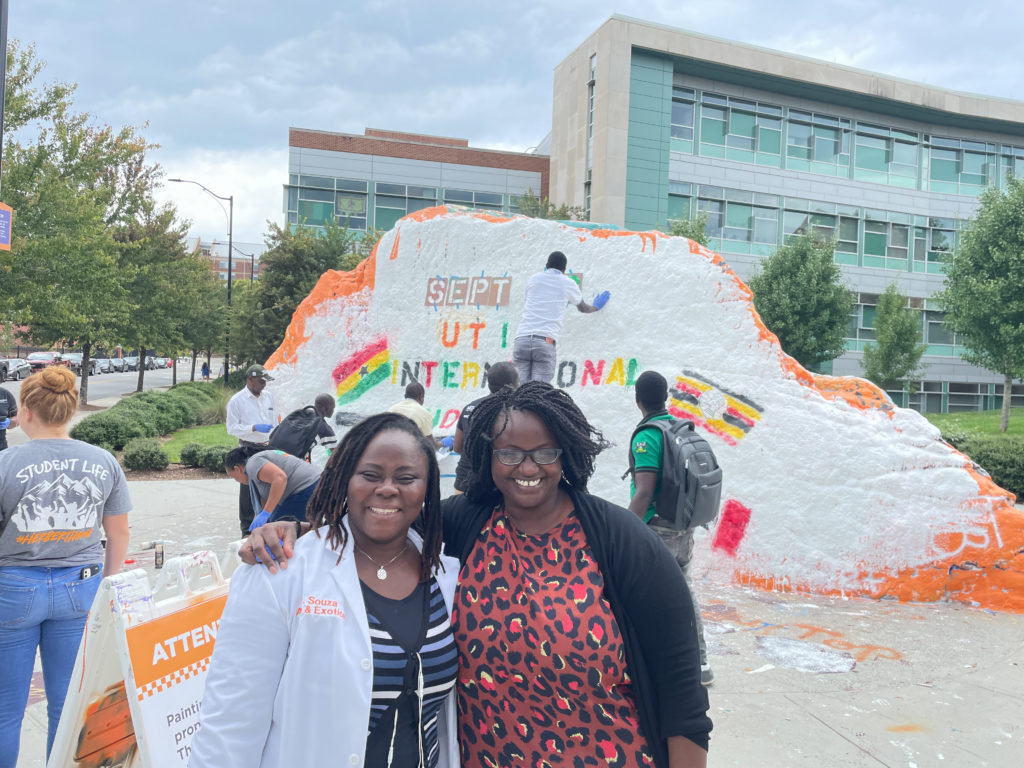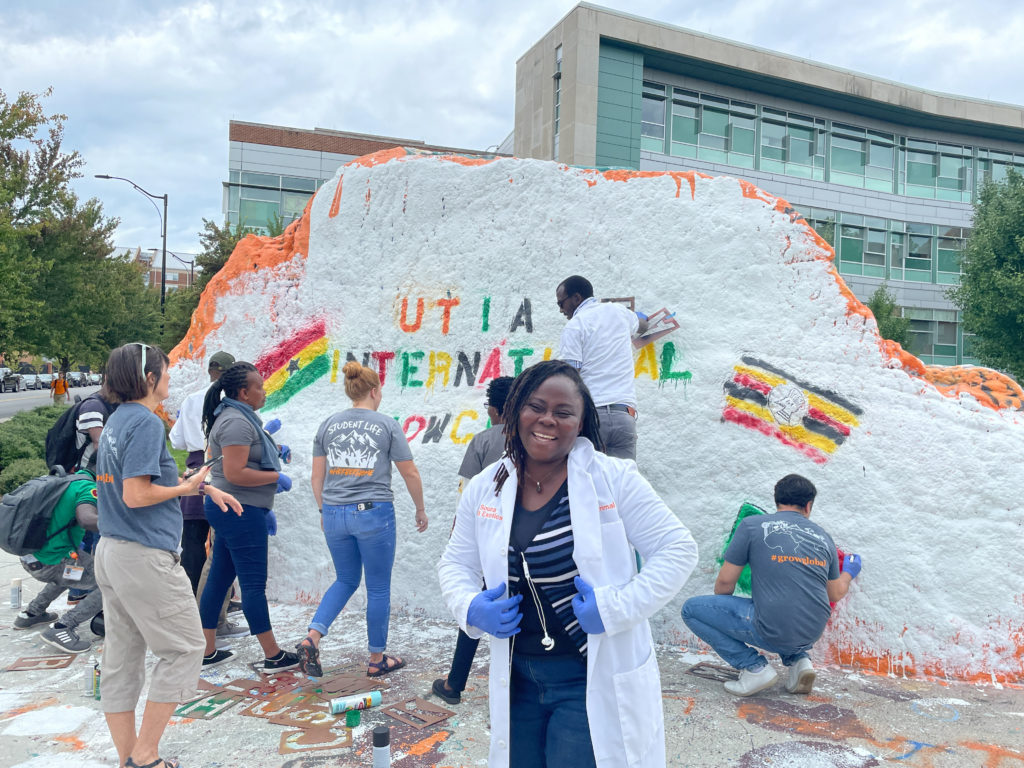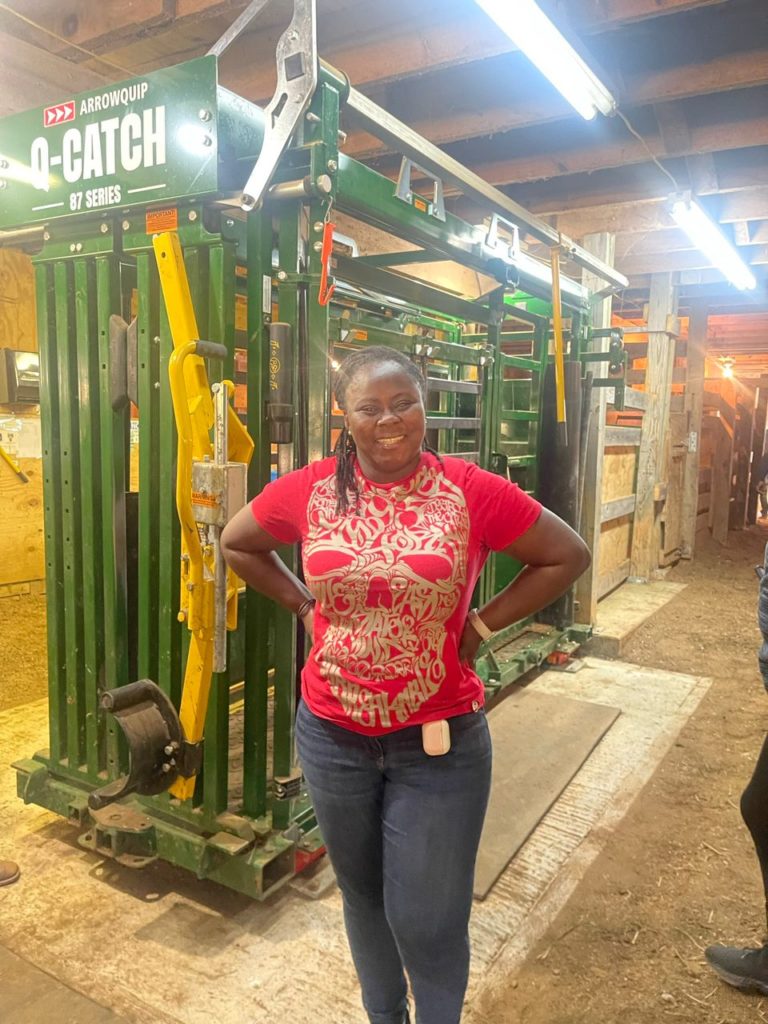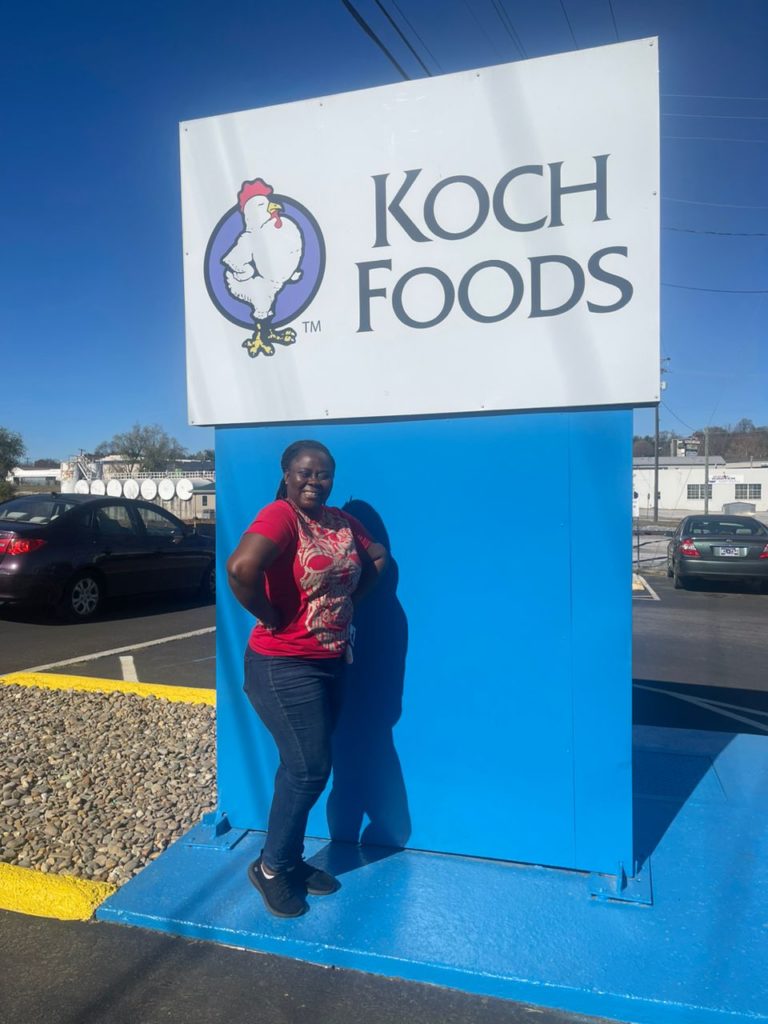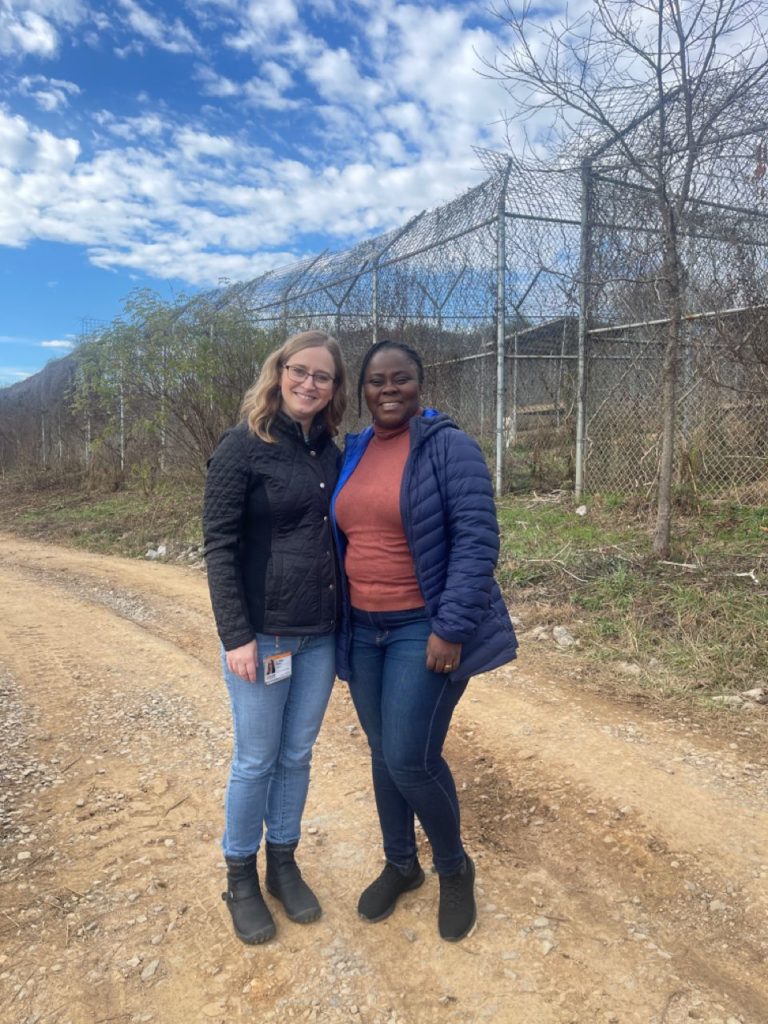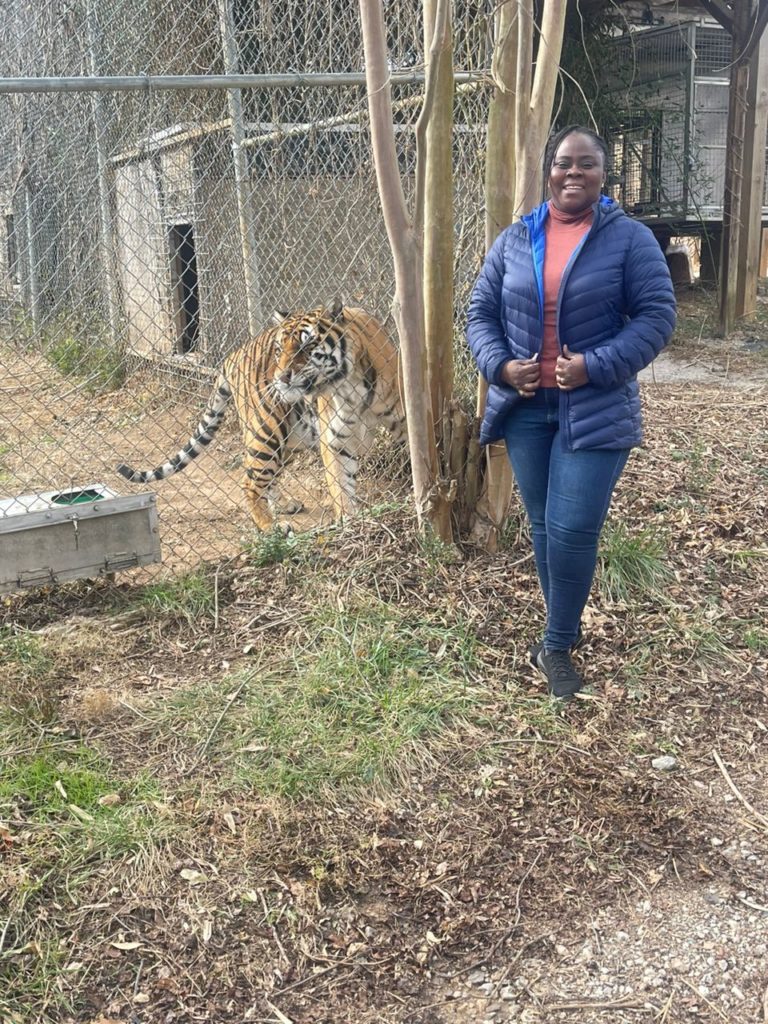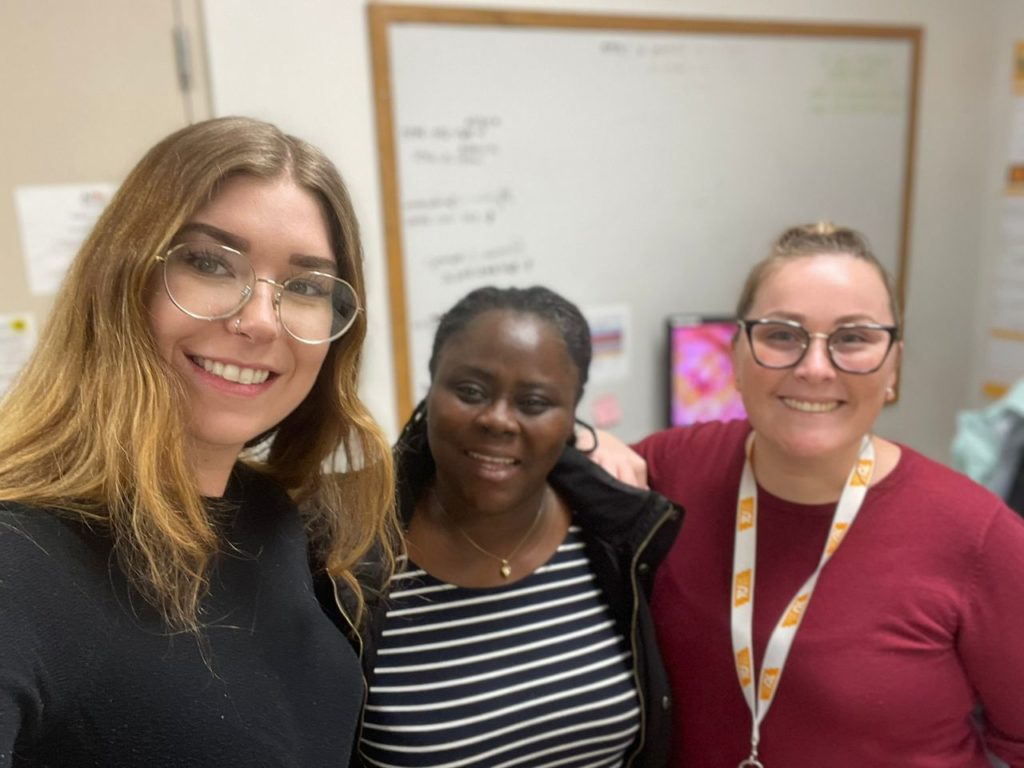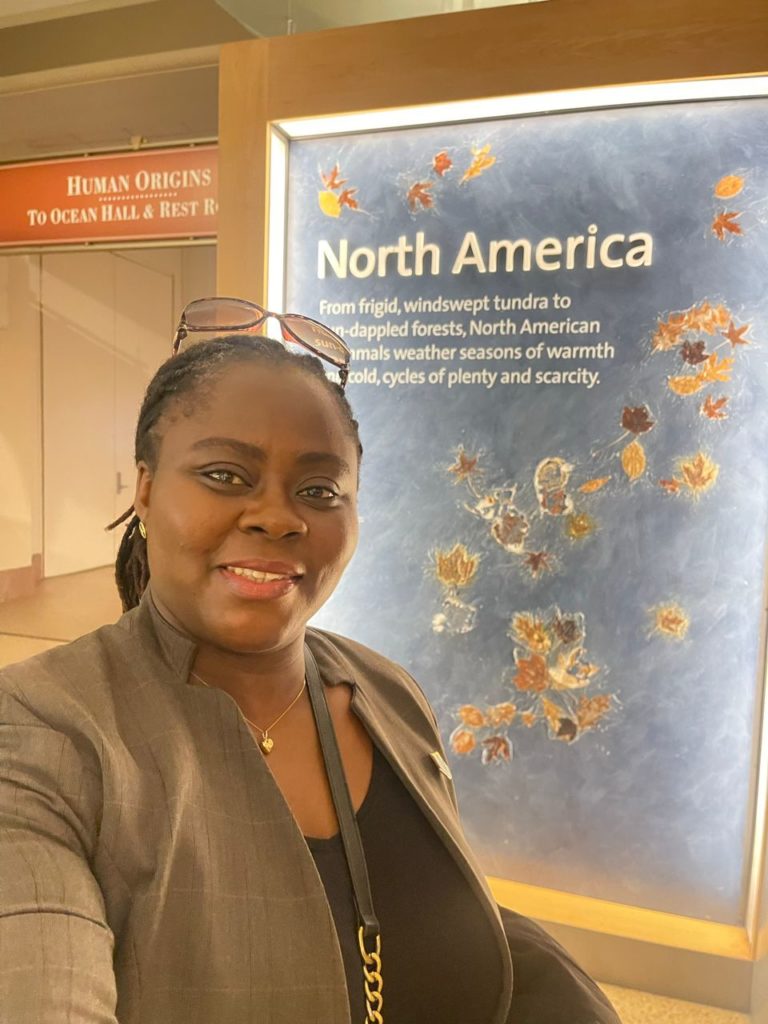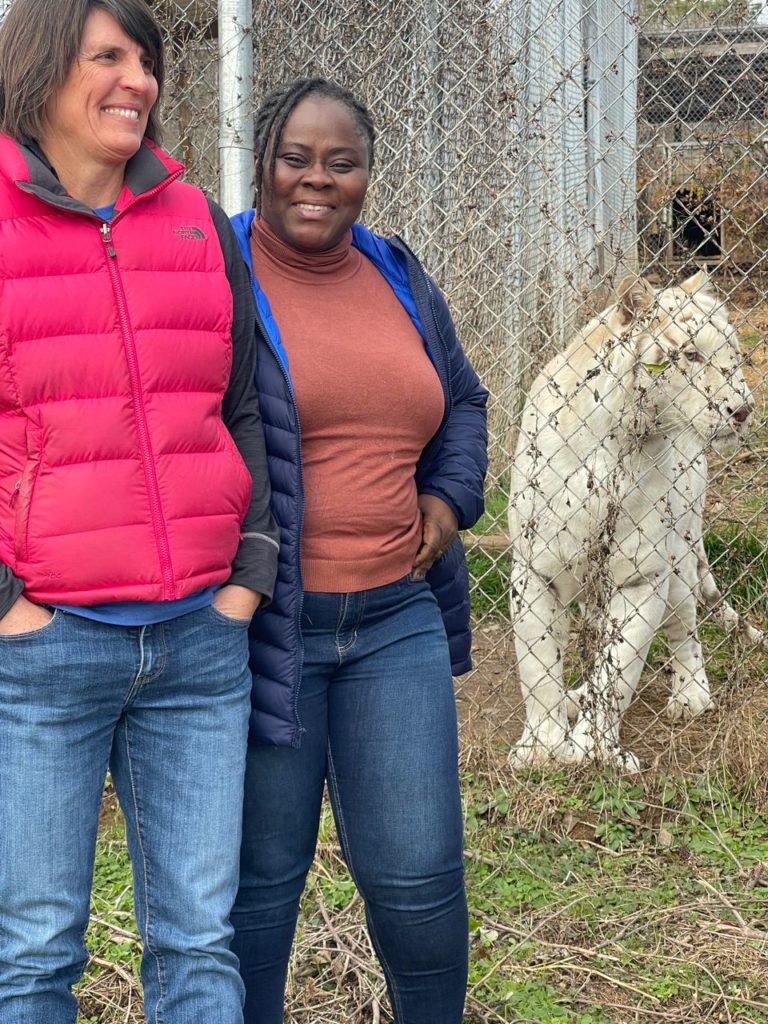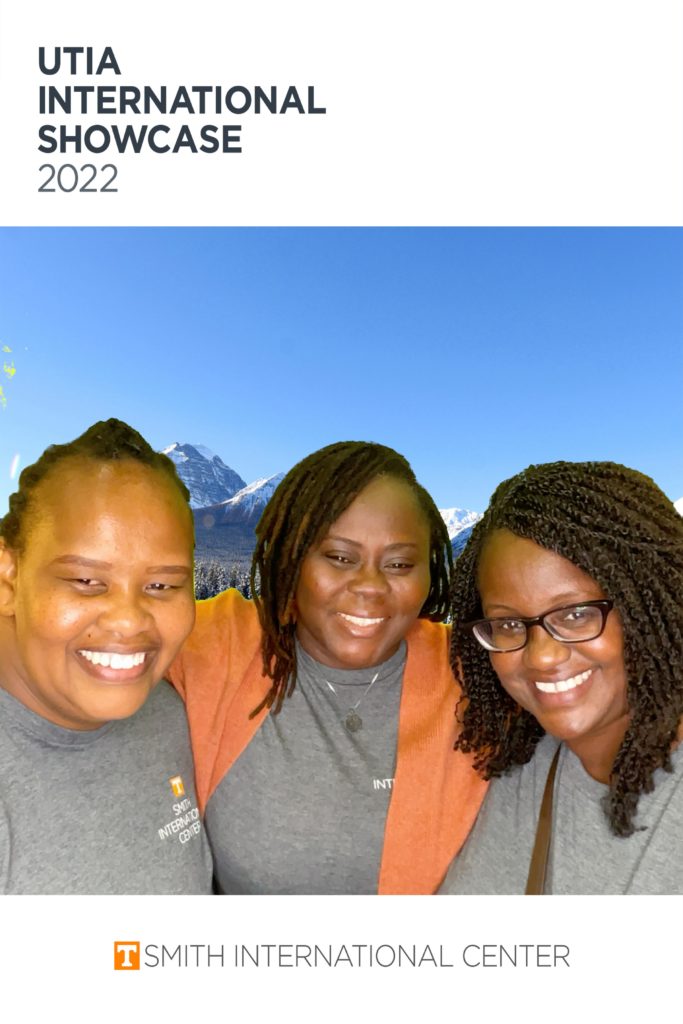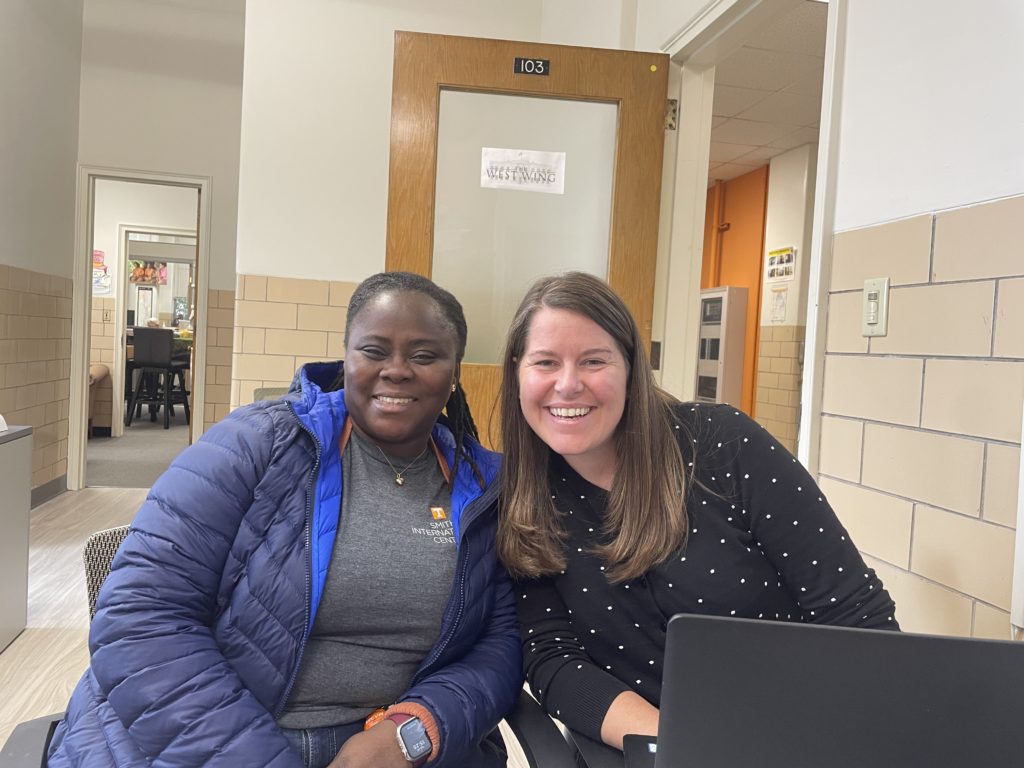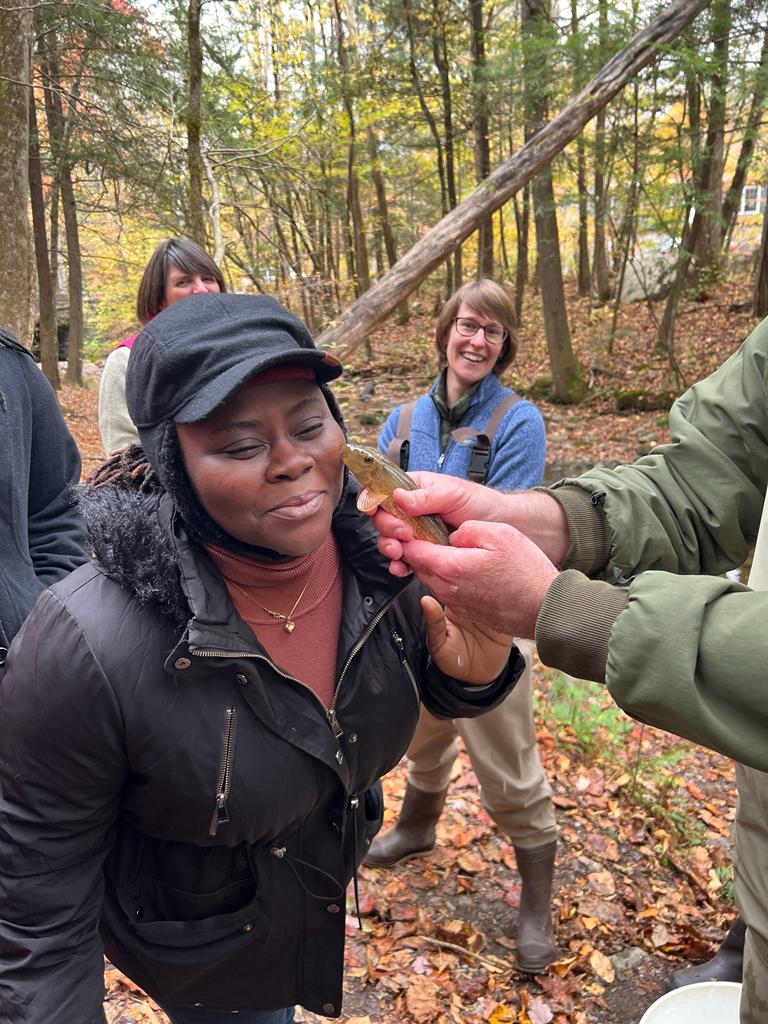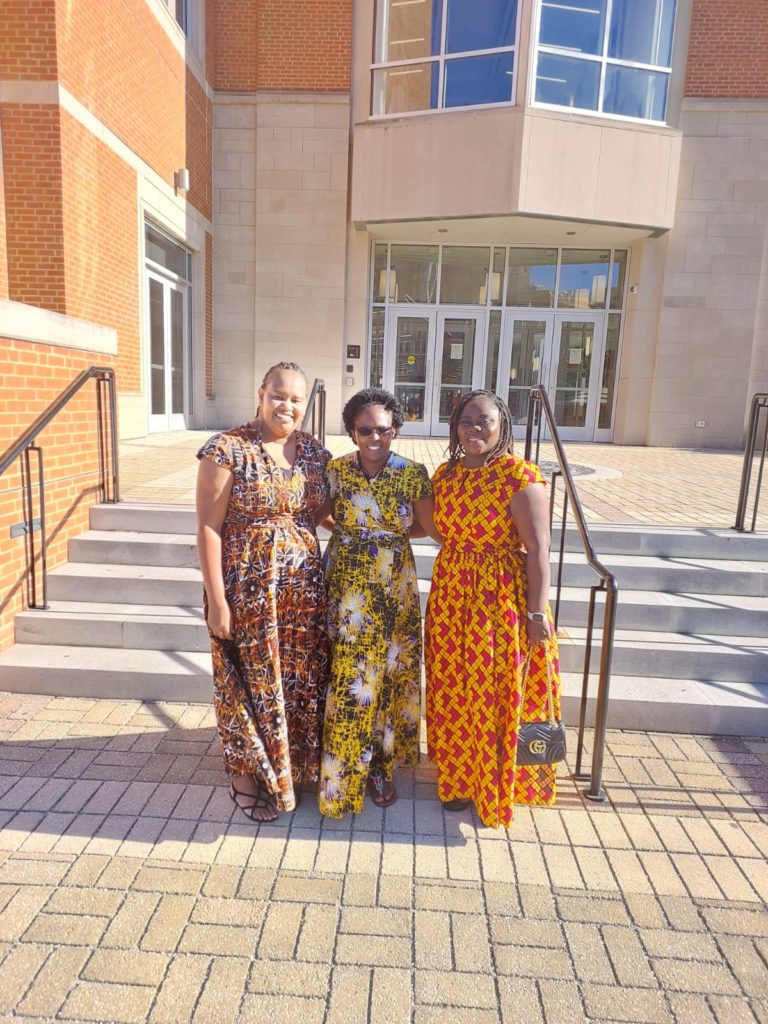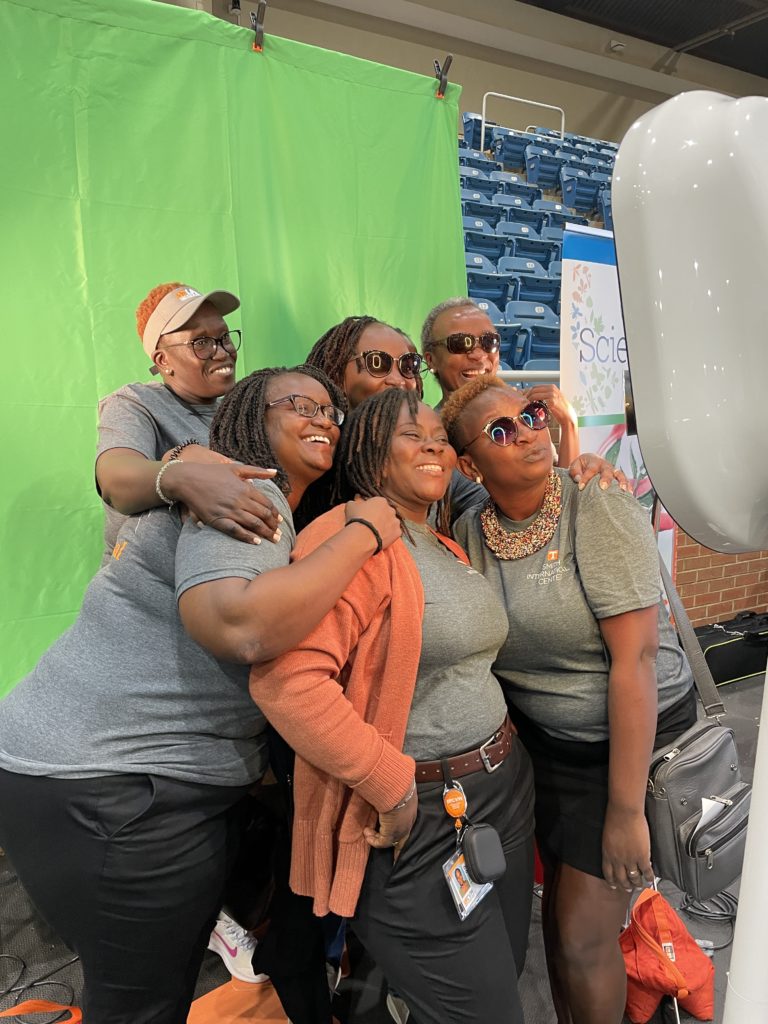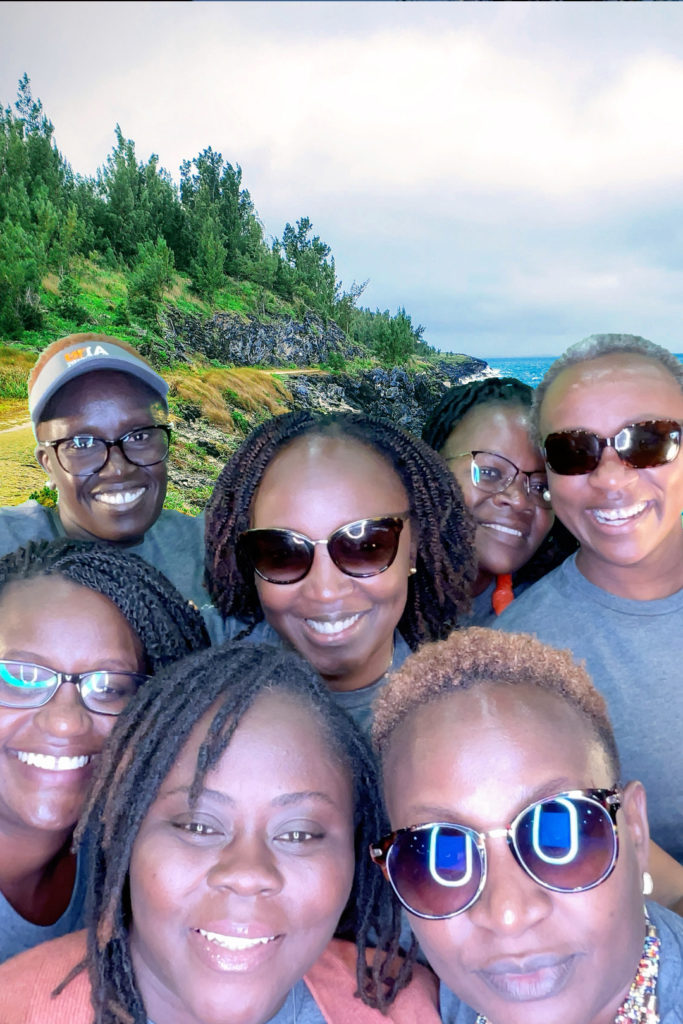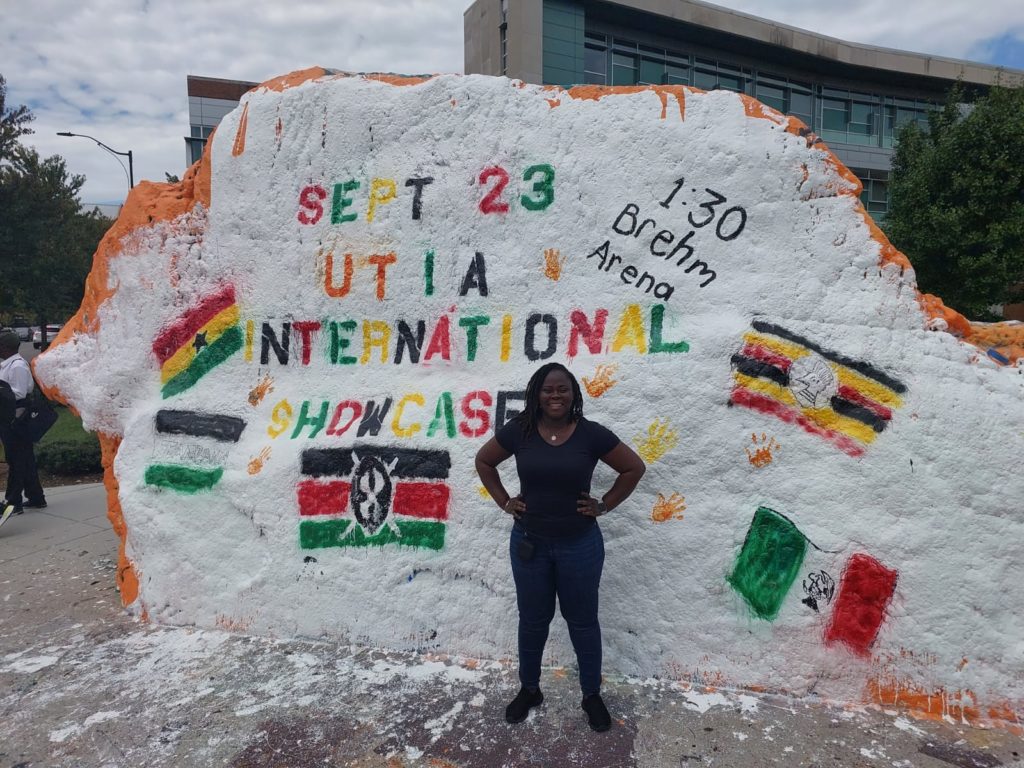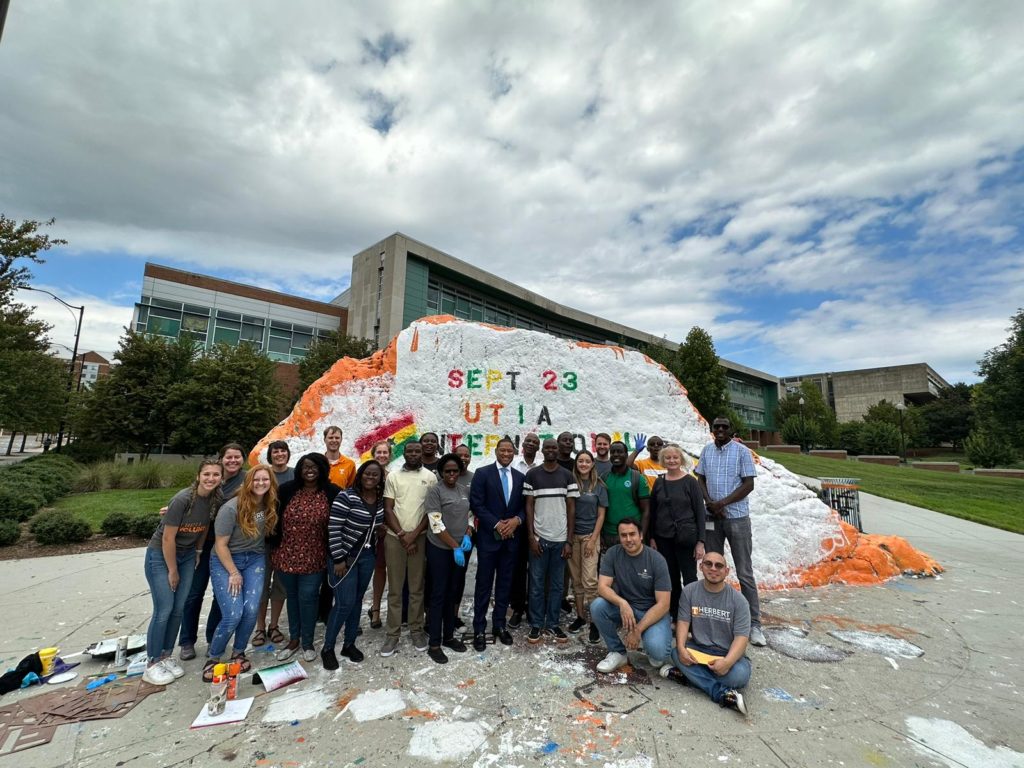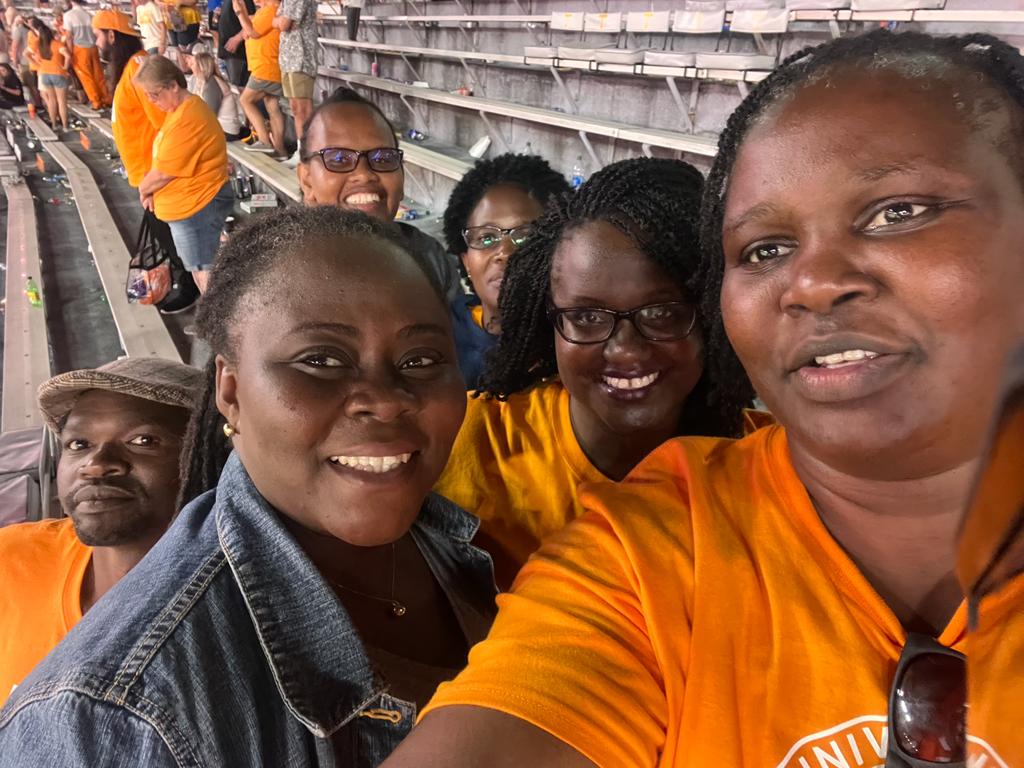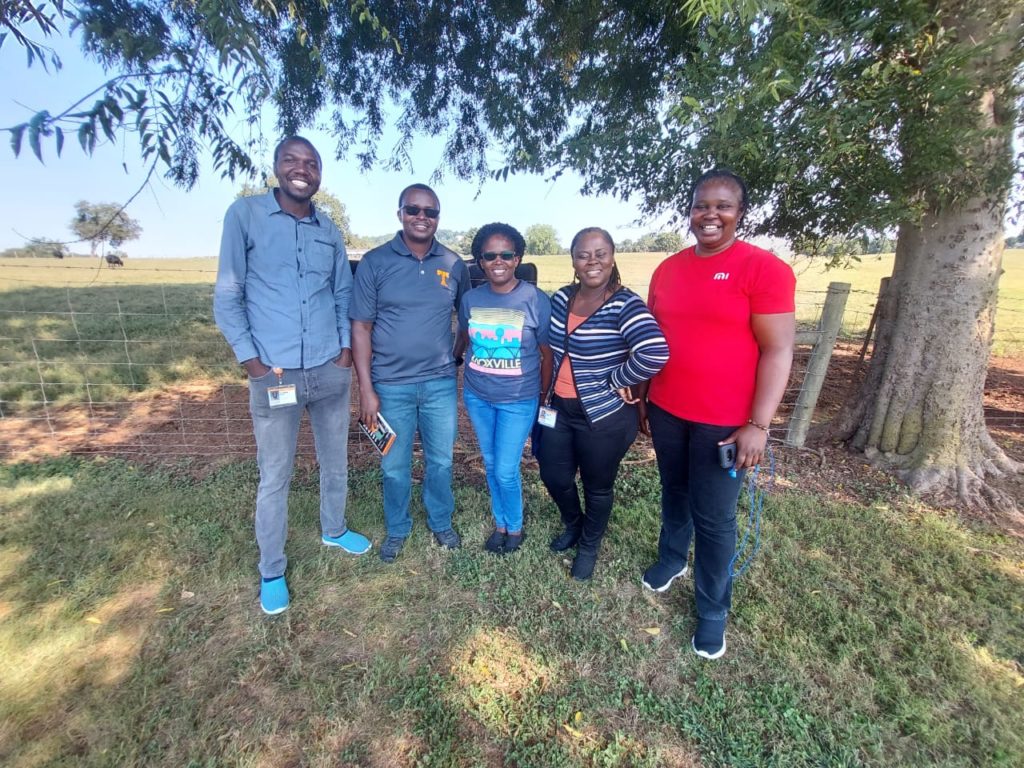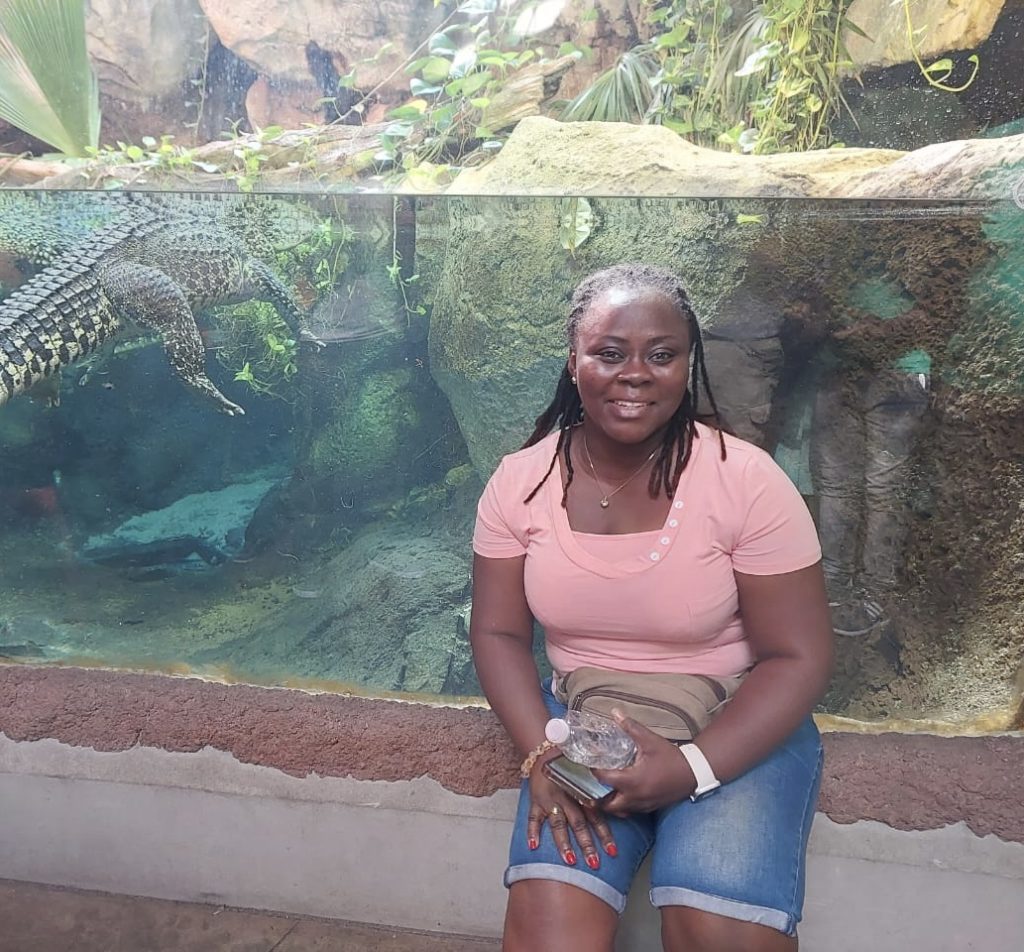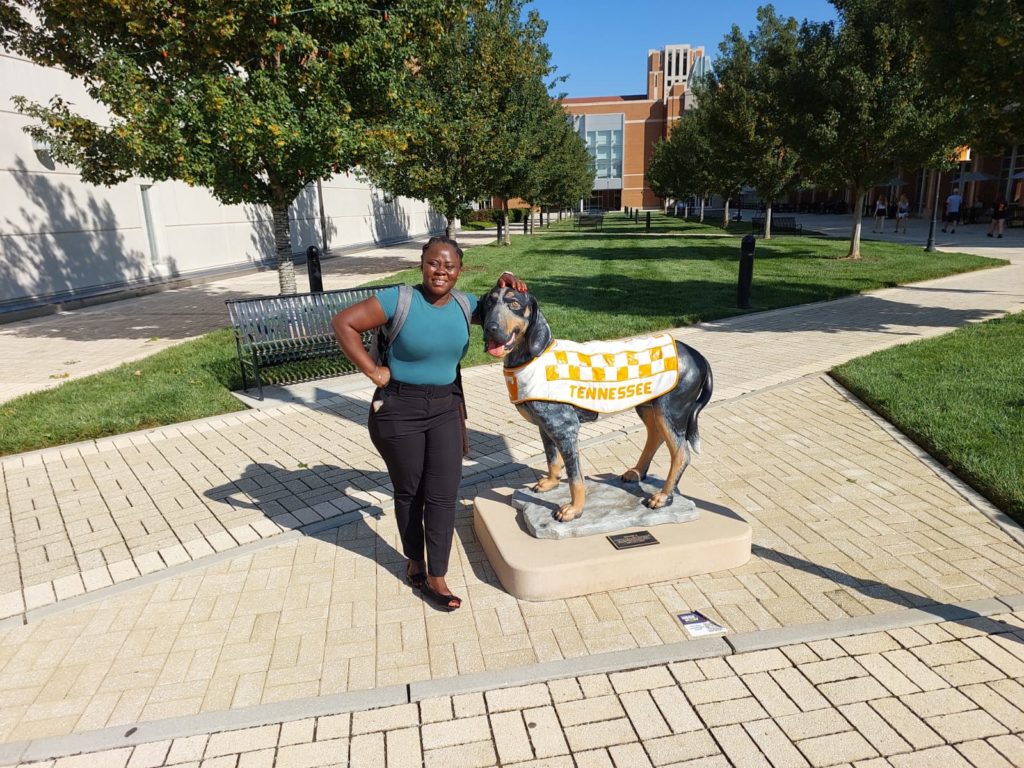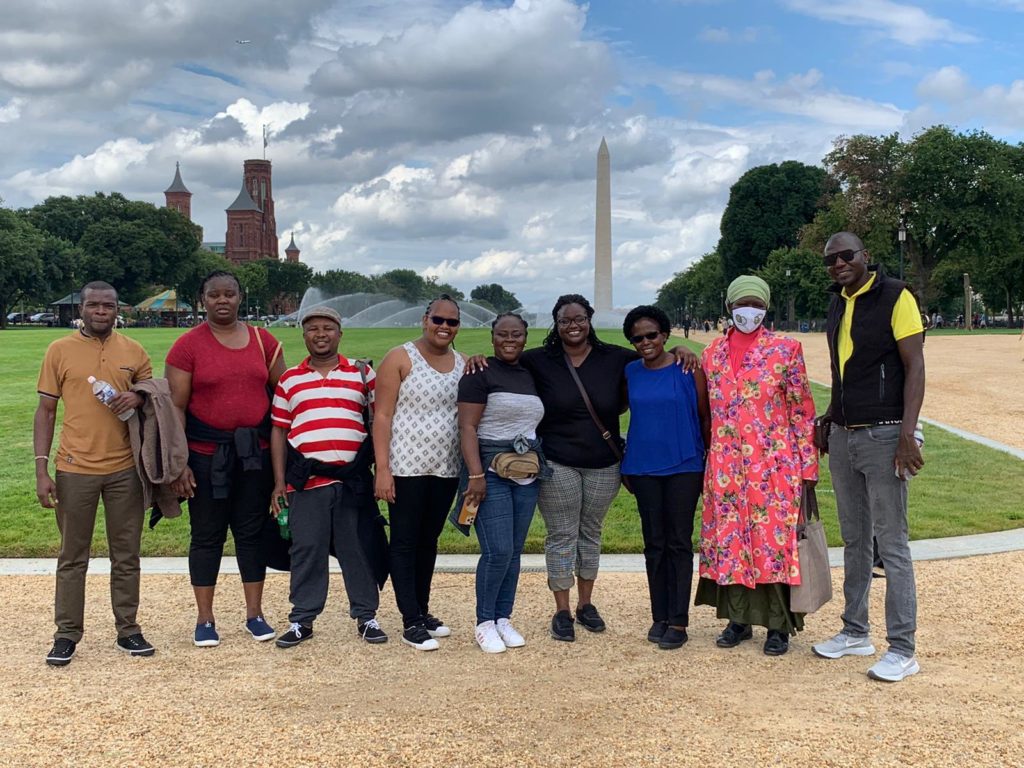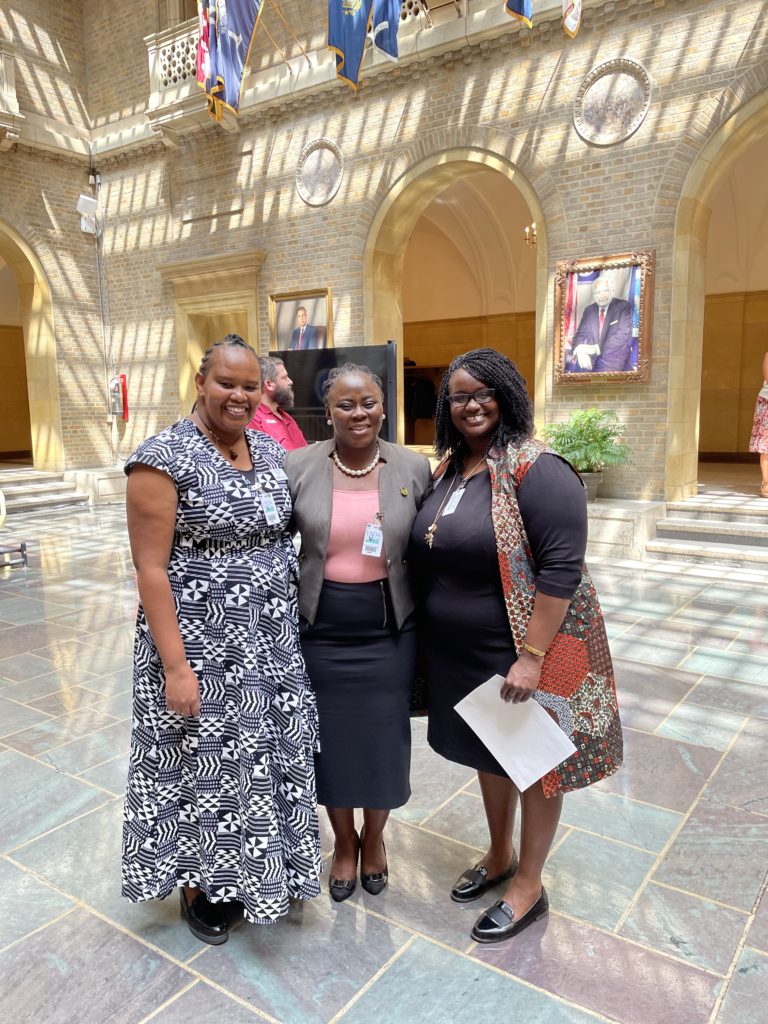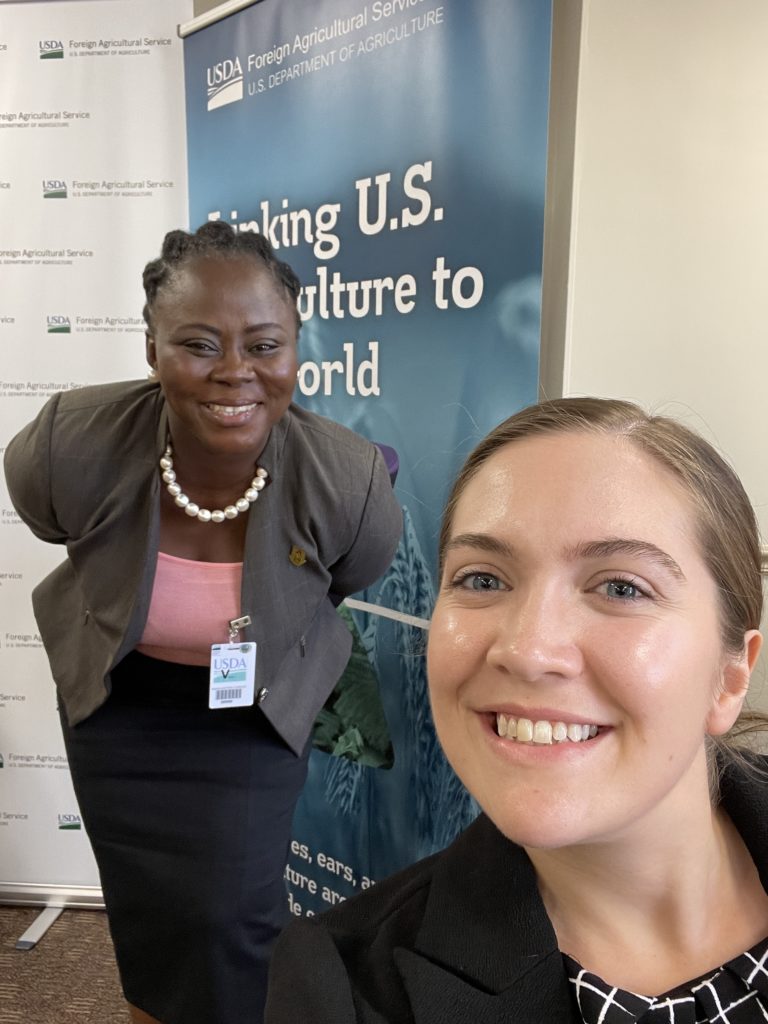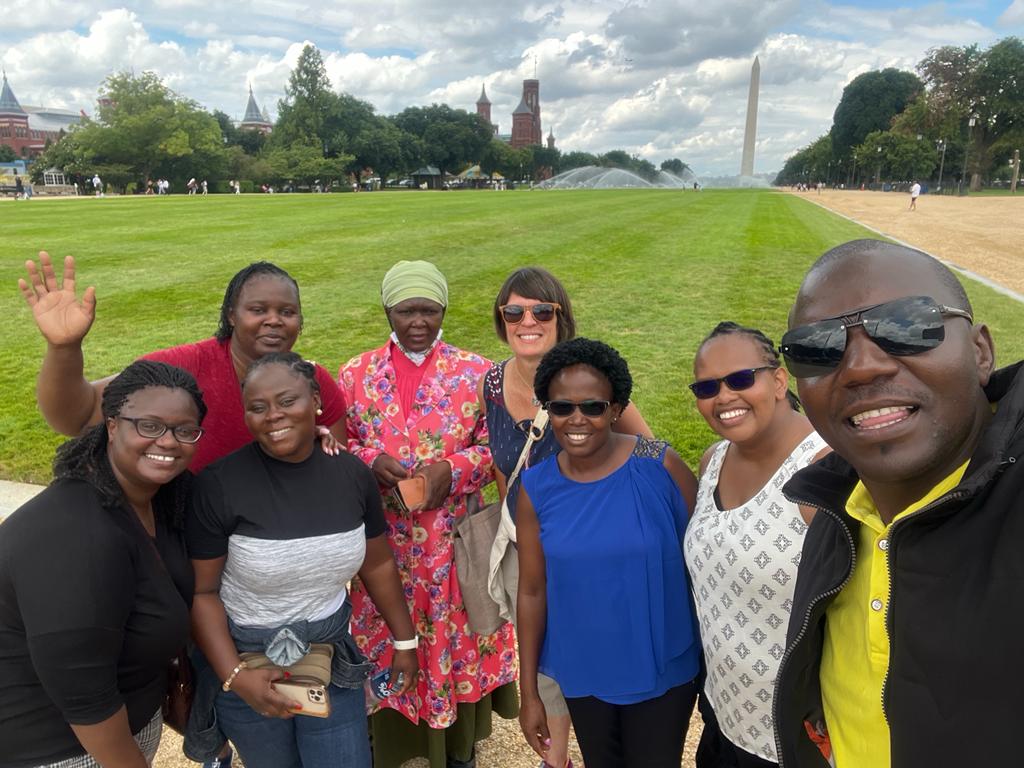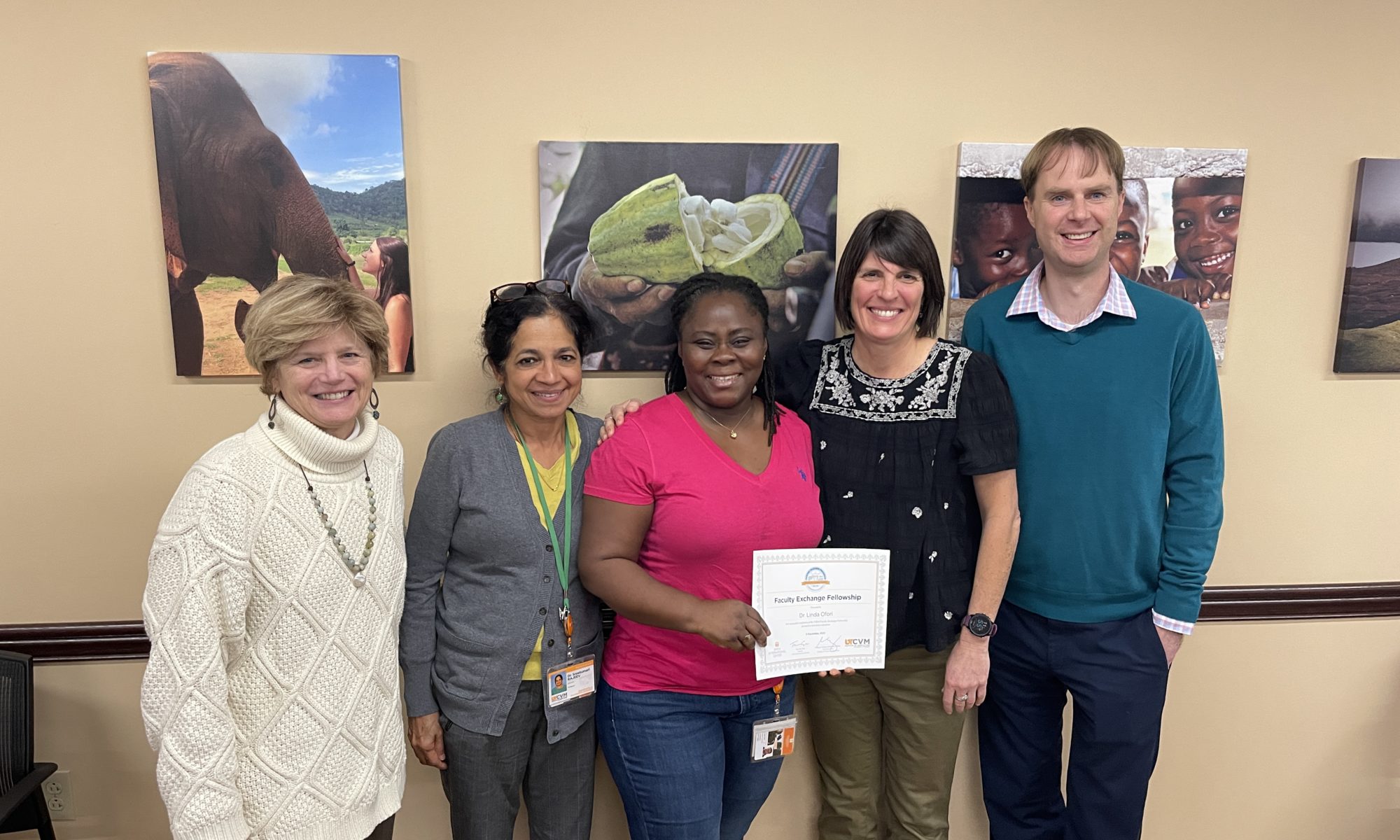
By Nadia Tippett
From August to December 2022, the University of Tennessee Institute of Agriculture hosted nine Faculty Exchange Program (FEP) and five Scientific Exchange Program (SEP) fellows from four African countries. These programs are funded through the Foreign Agriculture Service (FAS) at the United States Department of Agriculture (USDA), and they focus on veterinary teacher pedagogy and animal health governance. Marcy Souza, professor and associate dean for outreach and global engagement at UTIA CVM, served as the project lead for both programs. The visiting SEP fellows were all from Kenya, and the FEP fellows were from Ghana, Kenya, Tanzania, and Uganda. They were matched with faculty members from three different UT colleges for mentorship for the duration of their programs. Learn more about each fellow and their mentor throughout this #FacultyExchangeFriday blog series.
Linda Aurelia Ofori is a professor at the Kwame Nkrumah University of Science and Technology in Ghana. Learn more about her experience as a FEP Fellow below.
Q: What interested you about this program?
A colleague of mine also did the FEP program two years ago and mentioned it to me; she sent me the link and encouraged me to apply. I found the prospect appealing because I would get the opportunity to experience teaching, research and life outside of the domain that I’m used to; I liked the goals of the program and was excited to learn more about veterinary training. I also always liked the idea of coming to the United States.
Q: What were some highlights of the program for you?
I had already gone through a lot of training and teaching workshops back home, so this program assured me that the teaching reforms at my own university were going in the right direction; we just need to take it to the next level to fully implement these programs to see the results of those changes. I’m able to see a lot of those outcomes here at UT with teaching, curriculum development, syllabus, style and delivery. Vet training here is on a much larger scale because students coming into our program in Ghana are still undergraduates.
I learned how to more effectively use assessments, multiple choice questions, and discussions to better evaluate students and give feedback. I really enjoyed the different teaching labs as well. Some things that I found interesting were the horse composting process in order to get the bones to use for teaching. It seemed like the students gained a lot from that teaching tool.
The involvement of state institutions when it comes to vet training was nice to see. I noticed with general health and safety, the USDA is involved at every point of the process to ensure certain food safety standards are being met. I also valued getting to tour different processing plants for the first time. Getting to go out into the field and visit those sectors of the industry was very fascinating.
Q: What are you next steps following your completion of this fellowship?
My first big step relates to the master teacher program; as an institution we do not have a great focus on uniform regulations or requirements and there is no use of a syllabus. I am currently talking with my department head about developing a standardized syllabus.
The second thing that I plan to implement is application-based learning: a problem-based learning approach that assigns cases to groups of students and challenges them to go through the case trying diagnose and solve issues. I will talk with the vet school about implementing something like this for our vet students at home. I also hope to better utilize multiple choice questions. Since my mentor works with leptospirosis research, I am looking at doing a research project with her to identify gaps on studying this in Ghana.
Q: Why do you view exchange programs like this one as being important?
The cultural exchange aspect is fantastic; getting to meet people from different areas, different parts of Africa and different value systems gave me many new perspectives. Integrating with people made me recognize that we are not all on the same level in veterinary medicine and academics, likely because some areas have scarcer resources. I identified similarities and differences between different exposures and methods and realized that we still all have the same agenda when it comes to teaching the next generation. It was especially nice to have a global perspective and see how we are all connected to the world. The SEP and FEP programs work really well together; we were able to learn from the SEP fellows about the policy side of our research and how our research solutions can be translated to policy.
My mentor teaches similar courses as I do back home, so I went to class a few times with her and observed her teaching style. I noticed her active engagement with students and how fun she made her classes. Post-graduate students introduced me to their research area and took me through the process of isolating organisms. This part of research is unfortunately difficult to implement back home due to a lack of the right type of microscopes, so I looked at alternate methods. My mentor has been very good with trying to introduce me to her research methods; I got to sit in the bacterial lab in small animal clinic and observe what she does there. It was all very helpful for both teaching and research.
Q: What was your favorite part about being at UT and in Knoxville, TN?
Tennessee is very serene and peaceful; I felt safe walking outside and never had to worry that someone was going to harm me. The people here are so nice, always willing to help and be kind. I loved the hotel and everyone working there; they were very accommodating. The bus drivers got to know me and have always been so nice. There was actually an incident where I left my shopping bag on the bus and the driver took it up front and made sure to return it to me. They are always looking out for you. I will truly miss the people and experiences I’ve made here.
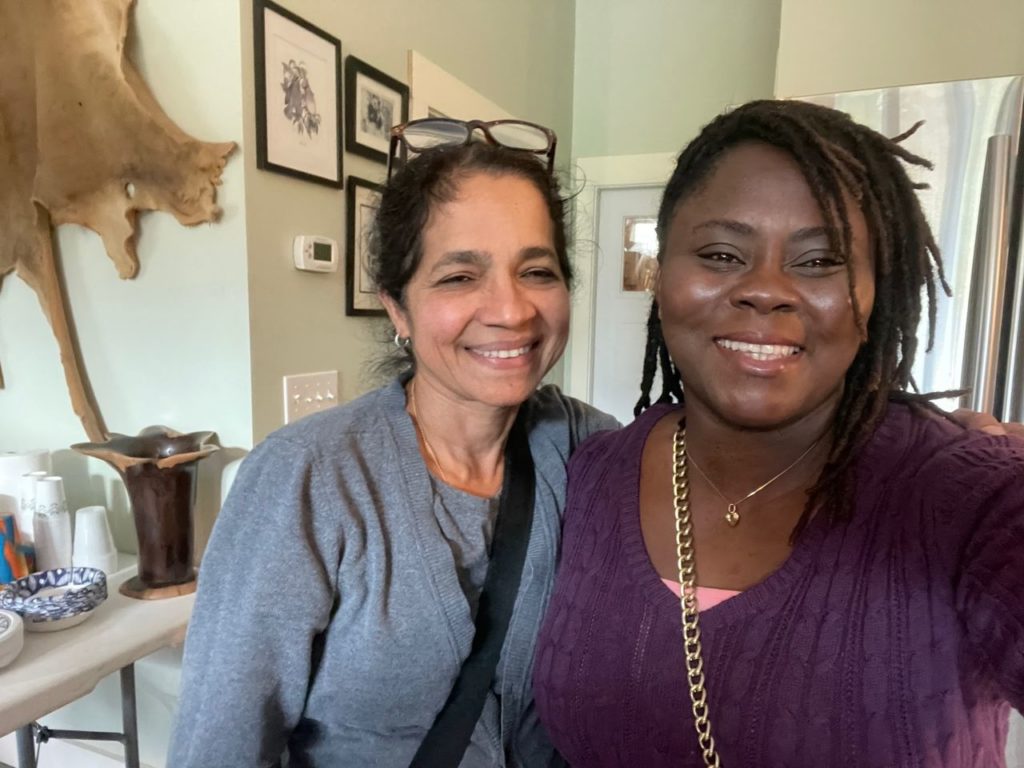
Linda was mentored by Sreekumari (‘Sree’) Rajeev, professor of infectious diseases and director of the Bacteriology and Mycology Laboratory for the College of Veterinary Medicine. Her work focuses on advancing the field of infectious diseases, specifically leptospirosis, a widespread zoonotic disease with impacts on humans and animals. “I utilize both traditional and advanced molecular techniques to advance our knowledge and have a holistic approach focusing on microbiology, molecular biology, pathology, host-pathogen interaction, and epidemiology to develop improved vaccines and diagnostics,” Rajeev explained.
Q: What interested you in participating in this program?
I thought it was a wonderful opportunity to interact with an international scholar and exchange knowledge and experience and learn from each other.
Q: What were some highlights of the program for you?
Regularly interacting with Linda and other scholars and exchanging knowledge and experience was extremely valuable. I also got to learn a bit about the culture and status of education and science in Ghana.
Q: What did you learn from interacting with your mentee?
During Linda’s time here, she completed a short lab assignment reviewing the current literature on the status of Leptospira infection in West Africa and Ghana specifically. We learned that this field’s lack of knowledge and advancement is a serious concern for animal and human health.
Q: What kind of impacts do you think these exchange programs have?
I believe the topics Linda learned about and the procedures used for Leptospira diagnosis could be utilized in her institution. I think the knowledge she gained while interacting with our staff and students will be valuable to take back and apply in her workspace. I also look forward to visiting Ghana and learning about her institution and practices. Ultimately, I envision establishing a collaborative research program to continually exchange knowledge in our fields of expertise.
